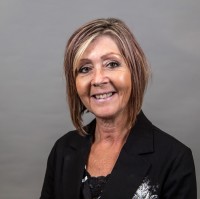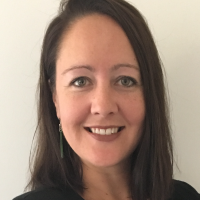Associate Professor Sonja Macfarlane and Melissa Derby, University of Canterbury
As whānau/families pull up at school gates around the country to drop off their children, many will see a set of values proudly displayed in te reo Māori (the Māori language) in a position of prominence within the confines of the school – concepts such as:
- manaakitanga (ethic of care)
- aroha (compassion)
- whanaungatanga (building relationships)
- mana (dignity, respect), and
- ako (reciprocal learning).
These are indeed lofty imperatives with deep cultural meaning. Given the frequency with which words like these appear in the day-to-day activities and communications of many educational settings, one might assume that these values are authentically embedded within leadership, policy, and pedagogy. But is this always the case? Do these values stem from the rākau (in the context of this piece, rākau is abbreviated from pene rākau, or pencil) – where they are penned merely to tick the ‘culturally-responsive to Māori’ box – or do they emanate from the ngākau (from the heart) – where they are authentically experienced in all aspects of school life by learners, teachers, school leaders, and whānau?
On deeper reflection, we consider it worthwhile to ponder if kaupapa Māori values are little more than words (rākau) within educational settings, or if the deeper meaning of these values actually determines and drives every facet of school life (ngākau).
What does it look like? Rākau vs ngākau approaches
How can we tell whether these values are truly integrated within the culture of the learning environment? By way of an example, let’s consider one aspect of school life: behaviour management.
- An education setting that works from a rākau position may still adhere to a punitive behaviour management approach, where learners are isolated, punished and berated for transgressions. Educators and leaders using rākau perspectives may be unable to see the contradiction that this punitive, behavioural approach has to values like manaakitanga, aroha, whanaungatanga, mana, and ako.
- Conversely, a learning environment that adopts a ngākau position on behaviour management would embed and facilitate restorative approaches. Within such approaches, the mana of all parties remains intact, and the focus is on restoring relationships, achieving harmony, and ensuring accountability. In this way, the values of manaakitanga, aroha, whanaungatanga, mana, and ako are lived in an authentic and meaningful manner through daily interactions, and become the norm in the school environment.
Another example of the difference between the rākau and the ngākau approaches comes from considering how the curriculum is framed in classroom practice. Educational research shows us very clearly that a culturally responsive curriculum has the potential to have a profound impact on learners’ sense of cultural identity, influencing their engagement in learning, educational achievement, and their sense of belonging as Māori. The goal of a culturally responsive curriculum needs to be motivated from a ngākau position.
- A rākau approach to the curriculum may involve teaching about but never through Māori culture. Siloed and truncated Māori cultural content, such as one week of te reo Māori or a unit on the Land Wars, would be adopted as part of the curriculum and then only delivered within a specified time slot.
- On the other hand, a ngākau approach would ensure that Māori cultural content, including the use of te reo Māori, is infused within all curriculum areas and as continuously as possible over the teaching year. Place-based pedagogy along with local and national cultural narratives and experiences would drive the content, the teaching, and the learning. In practice, this may include learning about local histories, important historical events, tribal icons and sites of significance, and the narrative surrounding Māori place names.
The importance of our words
Zooming out from these practical examples, let’s also consider the wider issue of how te reo Māori is used in the context of school values. How culturally responsive is it to use te reo Māori words simply to name a set of school values – but then for the deeper meanings of these rich cultural concepts not to be lived and experienced in genuine and meaningful ways in the day-to-day realities of school life? Is this effort to be ‘culturally responsive’ really just (in some settings) a rākau approach – merely a ‘tick-box’ exercise that is adopted to give an impression of a ngākau approach?
Of course, we are all on a learning journey, and this journey needs to start somewhere. Oftentimes, that initial step begins with the rākau – a simple, concrete, manageable step. We are not suggesting that the use of te reo Māori words to articulate values is entirely inappropriate, but we want to reiterate that a rākau approach does not signal a final destination. Rather, we are advocating for continued learning and progression towards a ngākau approach where Māori values are operationalised authentically within the spheres of leadership, policy, and pedagogy (see Chapter 6 of this book for an example of this ngākau approach in action in a New Zealand school). It is, in fact, the ngākau approach that enables the journey to continue along a truly culturally responsive pathway – a journey that is inclusive, meaningful, exciting, and ongoing for all involved.
 Sonja Herahine Macfarlane (Ngāti Waewae; Ngāi Tahu) is an Associate Professor (Senior Research Fellow), and Co-Director of Te Rū Rangahau, the Māori Research Laboratory at the University of Canterbury (UC). Her research and teaching focus on culturally responsive evidence-based approaches in education, psychology, counselling and human development. Her research has been widely published in leading research journals, both nationally and internationally. In 2017, Sonja received the New Zealand Association for Research in Education (NZARE) Tohu Pae Tawhiti Award for her contributions to Māori research over many years. In 2017, she was also a member of a team that received the UC College of Education, Health and Human Development Research Team Award. In 2015, she was a co-recipient of the CLNZ Education Award “Best Resource in Higher Education”, and in 2014 received a UC Research Excellence Award. Sonja is a member of the New Zealand Psychological Society, and is a research and advisory member on several ministerial-funded projects.
Sonja Herahine Macfarlane (Ngāti Waewae; Ngāi Tahu) is an Associate Professor (Senior Research Fellow), and Co-Director of Te Rū Rangahau, the Māori Research Laboratory at the University of Canterbury (UC). Her research and teaching focus on culturally responsive evidence-based approaches in education, psychology, counselling and human development. Her research has been widely published in leading research journals, both nationally and internationally. In 2017, Sonja received the New Zealand Association for Research in Education (NZARE) Tohu Pae Tawhiti Award for her contributions to Māori research over many years. In 2017, she was also a member of a team that received the UC College of Education, Health and Human Development Research Team Award. In 2015, she was a co-recipient of the CLNZ Education Award “Best Resource in Higher Education”, and in 2014 received a UC Research Excellence Award. Sonja is a member of the New Zealand Psychological Society, and is a research and advisory member on several ministerial-funded projects.
 Melissa Derby (Ngāti Ranginui) is a researcher at Te Rū Rangahau: The Māori Research Laboratory. She is a University of Canterbury doctoral scholar whose thesis will contribute to the Literacy strand of A Better Start: E Tipu e Rea National Science Challenge. Melissa has a Bachelor of Arts from Victoria University of Wellington, a Master of Arts (First Class Honours) in Māori Development from AUT, and a Graduate Certificate in Indigenous Studies from Columbia University in New York.
Melissa Derby (Ngāti Ranginui) is a researcher at Te Rū Rangahau: The Māori Research Laboratory. She is a University of Canterbury doctoral scholar whose thesis will contribute to the Literacy strand of A Better Start: E Tipu e Rea National Science Challenge. Melissa has a Bachelor of Arts from Victoria University of Wellington, a Master of Arts (First Class Honours) in Māori Development from AUT, and a Graduate Certificate in Indigenous Studies from Columbia University in New York.


Thank you for sharing your knowledge. I loved the reading. I’m on the pathway!
LikeLike
Me mihi ka tika ki a koutou ngā kairangahau. Kua whai whakaaro au mō tēnei kaupapa mō te wā roa.
LikeLike
Brilliant piece! Kia ora
LikeLike
[…] #5: “From the rākau to the ngākau: Exploring authentic approaches to leadership, policy, and pedagogy” (read it here) […]
LikeLike
Tēnā rawa atu kōrua ngā Wāhine Rangatira! I absolutely enjoyed this post, I now have a bit of extra reading to do over the school holidays – your links are very much appreciated.
LikeLike
[…] From the rākau to the ngākau […]
LikeLike
[…] 3. From the rākau to the ngākau: Exploring authentic approaches to leadership, policy, and pedagogy (link) […]
LikeLike
[…] From the rākau to the ngākau: Exploring authentic approaches to leadership, policy and pedagogy (culturally responsive practices) […]
LikeLike
[…] From the rākau to the ngākau: Exploring authentic approaches to leadership, policy, and pedagogy Associate Professor Sonja Macfarlane and Dr Melissa Derby […]
LikeLike
[…] A Better Start: E Tipu E Rea, that designs qualitative and quantitative questionnaires based on a ngākau approach that ‘values collaboration and partnership’, ‘protects wellbeing and mana’ and […]
LikeLike